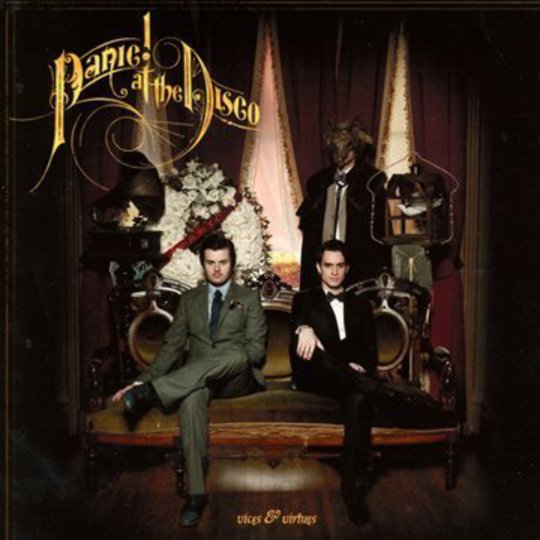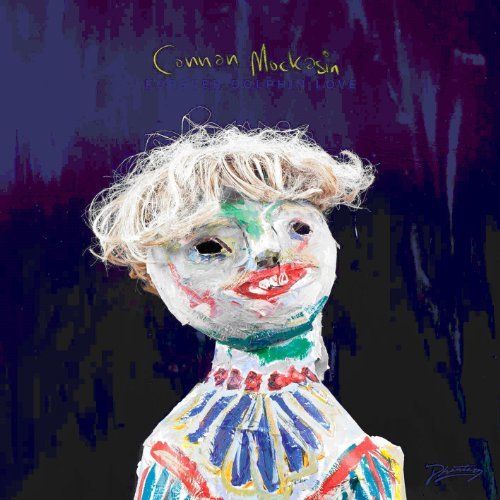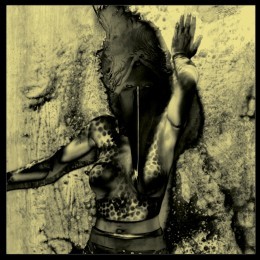You could almost write Panic! At The Disco’s career trajectory without listening to any of the records. World-conquering pseudo-baroque pop-rock record births second-album crisis, which yields slightly odd Anglophilia, which in turn leads to the main songwriter, Ryan Ross, parting company with the rest of the band. The result, one might predict, would be a flailing attempt to return to what made P!ATD great in the first place – ambitious, hook-filled pop songs that embrace the theatrical and the melodramatic.
Well, you would be half right. Vices & Virtues is not Pretty. Odd. Part II. The record sees P!ATD turn their back, in part, on the Beatles-aping that characterised that record – but it is far from a wholesale rejection of those tendencies. Instead, it relies on a combination of the ADHD vaudeville that got them signed in the first place, and the chuggingly tedious songwriting that marred their second record. This combination has, inevitably, some mixed results.
The opening salvo of ‘The Ballad Of Mona Lisa’ and ‘Let’s Kill Tonight’ is simultaneously encouraging and disconcerting. The music-box piano that begins the record is as clear an indication as any that the band are again indulging their faux-gothic passions – although the songs, which are also the first two singles, are nowhere near as gripping as any of those taken from A Fever You Can't Sweat Out.
Four tracks in, though, and the tone changes dramatically. The bulk of this record bears about as little resemblance to A Fever... as that record did to Pretty. Odd. Instead, it has apparently been bulked out with offcuts from abandoned Daniel Bedingfield sessions. ‘Memories’ is amongst the weakest tracks here, but it is also characteristic of the record as a whole. Suddenly gone is the Burton-esque burlesque-pop – replaced, inexplicably, by the sound of INXS playing the score from some fourth-rate off-Broadway musical.
This theme continues for about four tracks; it is, in fact, the theme of the bulk of the record. It culminates in suitably gag-reflex-inducing fashion with ‘Always’, which should never have made it out of the rehearsal room on the grounds that it is just too much like something off Paul McCartney’s damnably bad Flaming Pie.
The problem, aside from the evident paucity of ideas, is that frontman Brendon Urie has apparently completely taken leave of his previously fascinating sense of melody. Urie’s scatty, hopping-across-the-staves vocal lines were a major part of the appeal of A Fever..., but for much of Vices & Virtues the tunes are staid, stale. Gone too is the wonderfully frustrating hyper-literacy of that first record, and in its place is such triteness as "When the world gets too heavy / Put it on my back / I’ll be your levee". Eugh.
The final third goes some way to recovering the band’s dignity. ‘The Calendar’ has a chorus as great as any they have written, while ‘Sarah Smiles’ has one of the best (and simultaneously most contrived) vocal moments on the record: a short-of-breath a capella line that, while clearly the product of dozens of takes, is still a cute detail.
And then ‘Nearly Witches’, the closing track. The fact that it has more than three sections will inevitably lead some over-excited listeners to think it’s the wackiest thing they’ve ever heard – and this is, inevitably, P!ATD’s intention. In fact, it is a pretty good summation of this record as a whole. It is a combination of the form they perfected on A Fever..., and the content they swiped at in Pretty. Odd; the split-personality structure is still there, but it is filled not with the outrageously florid pop that characterised their early output, but by a mixture of the four-chord bilge they peddled on their second record, and the strangely lifeless emphatics that are splattered across the rest of Vices & Virtues.
Even the most open-minded of listeners would have been forgiven for assuming, on first hearing A Fever..., that Panic! At The Disco were a band with a limited shelf life. The fact that they have reached album number three is therefore an achievement in itself. But Vices & Virtues is quite some distance from the triumphs of that remarkable record. This is not, as one might have expected, the sound of a post-Ryan Ross band floundering, directionless. Instead, it is the sound of a band venturing down a number of relative dead ends; the sound of songwriters mining seams less rich than those they had previously explored. They will have to find more rewarding territory to burrow into if they are to successfully make it past album number four.
-
5Josh Hall's Score






















